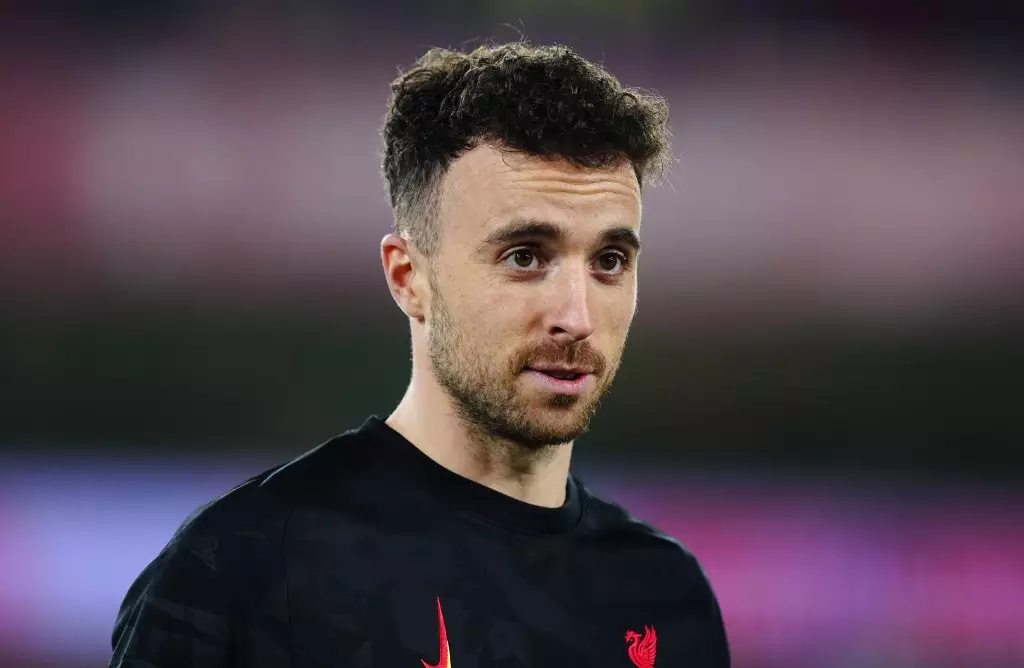The sudden and tragic demise of Portuguese football star Diogo Jota and his brother, André Silva, in a devastating car accident has sent shockwaves through the global sports community. As fans, colleagues, and rivals grapple with the magnitude of this loss, it becomes clear that beyond their athletic prowess, these individuals embodied qualities of resilience, passion, and humanity that leave a lasting legacy. This tragedy underscores the fragile line between vibrant life and unexpected tragedy, prompting reflection on the human side of sports figures often perceived solely through their achievements.
The details surrounding the accident are still emerging, but initial reports suggest that a tire puncture led to the driver losing control. The ensuing crash caused the vehicle to ignite, endangering not only their lives but also highlighting the unpredictable dangers facing all travelers. While the specifics remain uncertain, what resonates is the profound impact of this event—not only on the families involved but also on the millions who admired Jota as a player and person.
Diogo Jota’s Rise and Impact in Football
Jota’s career trajectory was marked by impressive achievements and unwavering dedication. From his move to Liverpool in 2020, he quickly became a linchpin of the team, scoring 65 goals in 182 appearances. His agility, technical finesse, and scoring instinct contributed significantly to Liverpool’s success—securing the Premier League title, FA Cup victory, and Champions League runs. These accomplishments established him as a key figure in European football, but behind the stats was a person passionate about the game and committed to representing his country with pride.
His role extended beyond the pitch; he was a symbol of Portuguese resilience and talent, earning two Nations League titles and serving as an inspiring role model for aspiring athletes. His journey exemplifies the power of perseverance, the importance of humble beginnings, and the relentless pursuit of excellence. For supporters, Jota was a familiar face—a source of hope and joy during hope-filled matches—and his untimely passing leaves an aching void.
Reflections from Humanity and the Power of Sports
The tributes from football legends, including Jürgen Klopp and Cristiano Ronaldo, shed light on the profound personal connection others had with Jota. Klopp’s words emphasizing his friendship and care for Jota underscore that behind the talented athlete was a caring, family-oriented individual. Ronaldo’s heartfelt condolences highlight the sense of loss felt within the Portuguese football family. These heartfelt words remind us that athletes, often seen as larger-than-life figures, are, in essence, human beings with families, vulnerabilities, and dreams.
High-profile figures from different sports and industries alike, like LeBron James, paid homage by emphasizing unity and remembrance. This collective acknowledgment speaks to a universal truth: sports have the power to forge bonds beyond competition, fostering a sense of community in times of tragedy. Yet, the responses also serve as a stark reminder of how fleeting life can be, regardless of fame or achievements.
The Cultural and Social Significance of Tragedy in Sports
This loss profoundly impacts not only personal circles but also wider societal perceptions about safety and mortality. Athletes are often viewed as paragons of strength, resilience, and invincibility, which makes tragic incidents like this all the more shocking. It challenges us to view sports stars as individuals inherently vulnerable to life’s unpredictability.
The silence that follows such a tragedy prompts questions about road safety, mental health, and the support systems in place for athletes navigating intense public scrutiny. It also ignites conversations about the importance of cherishing every moment and valuing life beyond professional accomplishments. As fans mourn, there is a collective call to honor Jota’s memory by appreciating the human behind the athlete—someone who fought hard to succeed and loved fiercely.
This incident also highlights the essential role of community and support in healing. As Jota’s family and friends face unimaginable grief, the sports world’s response emphasizes compassion and solidarity. It becomes clear that sport, at its core, is about connection—through shared passion, admiration, and the collective sorrow that unites us in times of loss.
In contemplating this tragedy, there emerges an undeniable truth: behind every athlete’s jersey is a human story with hopes, struggles, and love. Recognizing that makes the loss all the more poignant—a reminder that in the end, we are all vulnerable, and the true strength lies in how we support each other through life’s unpredictable storms.

